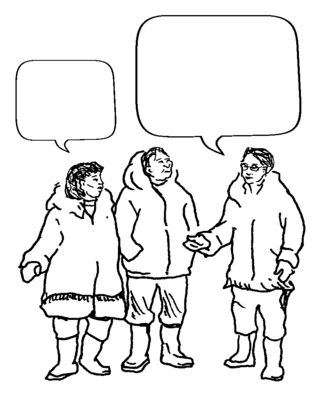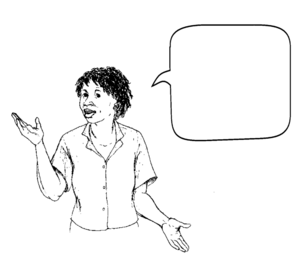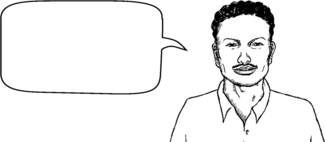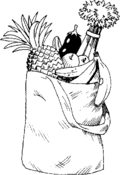Hesperian Health Guides
POPs (Persistent Organic Pollutants)
HealthWiki > A Community Guide to Environmental Health > Chapter 16: Harm from Toxic Chemicals > POPs (Persistent Organic Pollutants)
The most common POPs are dioxins (a chemical waste from manufacturing and incineration), PCBs (a chemical fluid used in electronics and many household products), and many kinds of pesticides (including DDT).

POPs travel through air, water, and soil. They collect in the bodies of living things and accumulate as they pass along the food web. Because of this, POPs are found everywhere in our environment, even in places far from where they were produced.
Dioxins are some of the most toxic POPs. Most dioxin is released when PVC plastic, bleached paper, coal, diesel fuel, and other things that contain the chemical chlorine are burned. Dioxin is also released from metal smelting, cement making, papermaking, and some pesticides. Dioxin released into air and water sooner or later gets into our food and drinking water. Dioxin causes cancer.
PVC plastic is commonly used to make pipes for water systems. PVC is also used in baby bottles, toys, food containers, and other everyday products. As PVC plastic gets old and worn down, it can release toxic chemicals, causing serious illness. When burned, PVC plastics release the harmful POPs dioxins and furans.

PCBs (Poly chlorinated biphenyls) are one kind of POP formerly used in electrical equipment, such as transformers and switches, and in products such as carbonless copy paper and dyes. Because they are known to be very toxic, PCBs are now banned internationally and replaced in some cases by other chemicals called PBDEs. But PBDEs also stay in our bodies for a long time, and also cause serious health problems such as damage to the brain and nerves.

Health problems from POPs
Even small exposures to POPs cause problems such as sterility and birth defects. Some POPs cause the body to become more sensitive to other chemicals as well.
Protecting your community from POPs
POPs are a part of many products used every day. The only way to prevent harm from POPs is to stop buying them, stop using them, and stop making them.

- Avoid buying products made from PVC. PVC products often smell strongly when first used or exposed to hot sun, and are often marked with the “3” or “V” symbol on the bottom of the product. If you have to buy plastic, those with numbers 2, 4, 5, and 1 are the safest.

- Do not use plastic bags and disposable (often bleached) paper products. Instead, use cloth bags and reusable plates and cups.
- Avoid burning trash, especially plastic trash.
- Grow and buy foods without chemical pesticides. Support farmers who use sustainable farming methods.
- Ask your health workers if they can get and use medical products that are not made of PVC plastic.
- Support laws that ban incineration of waste.
- Join the campaign calling for the total elimination of POPs (see Other Environmental Health Resources).


